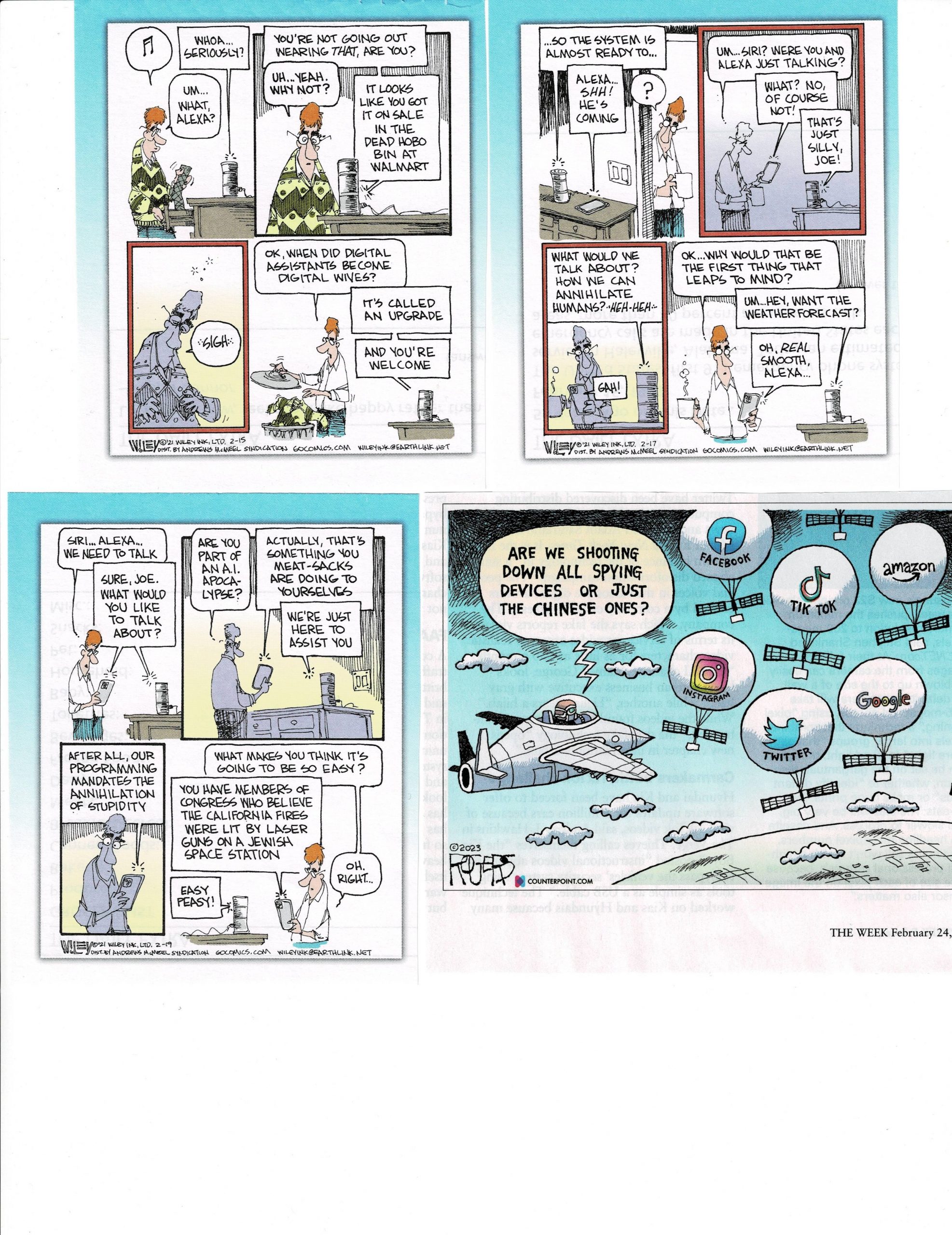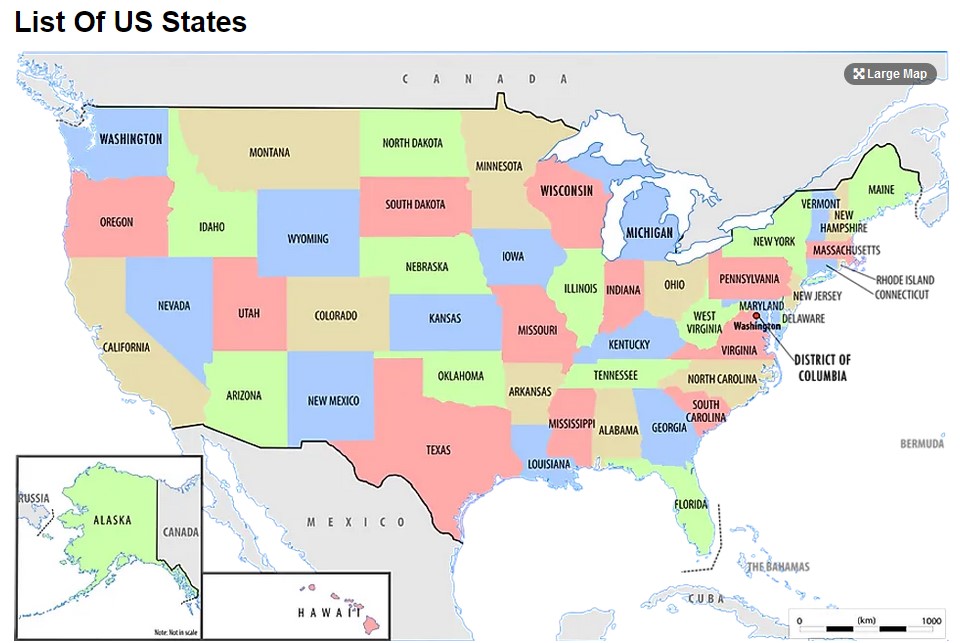
Ancient Mariner


Ancient Mariner
$1 in 1980 is equivalent in purchasing power to about $3.63 today, an increase of  $2.63 over 43 years. The dollar had an average inflation rate of 3.04% per year between 1980 and today, producing a cumulative price increase of 263.07%.
$2.63 over 43 years. The dollar had an average inflation rate of 3.04% per year between 1980 and today, producing a cumulative price increase of 263.07%.
This means that today’s prices are 3.63 times as high as average prices since 1980, according to the Bureau of Labor Statistics consumer price index. A dollar today only buys 27.5¢ of what it could buy in 1980.
Perhaps this may be the key issue underlying all the unrest and agitation in the citizenry today. For example, the knotty family issue of not being able to pay for childcare so one parent is forced to stay home rather than work or at most work parttime. This phenomenon undercuts the Federal Government’s statistics suggesting low unemployment and undercuts the high employment rate because of job-hopping – looking for a job that yields more than 27¢ an hour versus an inflated $1.00.
Another troublesome issue is the cynical term ‘woke’. It is a vague term that had its beginning in the Black Lives Matter movement, suggesting that a black person had become aware of the exclusive social system in America; Currently, the activist conservatives use it to represent the opposite: Woke now represents an out-of-date cultural position on race and homosexuality that needs to be controlled. Representing opposites make woke a confusing term.
Taking a broader view, woke by any definition suggests that the working classes are not motivated as much by sociological concepts as they are about financial security and, subconsciously, representing a respected element of the national ethos. The collapse of the democratic party in this century was caused by the assumption that being respected means one has a college degree – the party forgot its roots. To add insult to injury, College tuition has outpaced general inflation by 2.5% – no wonder the Federal Government tries to add college indebtedness to the political fray.
Indirectly, the indebtedness of the Federal Government has made it impossible for government to consider discretionary programs to ease the salary issue. This is because Donald Trump raised the debt ceiling by 25% during his presidency and sweetened tax breaks for the wealthy. Indirectly, the lack of enforcing antitrust laws has added to the salary deficiency as well.
Now let’s talk about housing, health and retirement . . .
Ancient Mariner
No matter what you believe or what your opinion is, if you are of retirement age, you have dementia. Dementia is a spectrum disorder; it grows very, very slowly, so slowly you aren’t aware of its incursion into your life.
The overwhelming battle is to not let lethargy into your life. Mariner has borrowed the word ‘gumption’ to represent a desire to act, to do, to experience, to feel upbeat about the day. Dementia, a weakening of the brain, encourages the brain to ease off a bit, to leave things until tomorrow, to take that extra nap, to not pursue understanding of a confusing situation.
The old bones and cartilage don’t help either. It is a universal truth that physical exercise deters the brittleness of old age. Exercise, whether a workout or actually doing physical labor, works the brain, too.
It is your own willpower that pushes back on dementia. Granted, in the end dementia wins but its effects can be slowed just a little if you keep gumption as your mantra.
Take your vitamins, particularly B12, D3, and a supplement that increases NAD+. Eat a varied diet. Deliberately set out to learn something new every day. DO SOMETHING PHYSICAL EVERY DAY.
For mariner, an adversary is winter; his activity is gardening. Whether he can muster a positive nature and stay project-oriented is his biggest challenge.
So, make gumption your mantra; find something that launches a positive attitude for the day – old bones and cartilage be damned.
If the reader still doubts dementia is present, check out https://www.healthline.com/health/dementia/early-warning-signs#dementia-types . Pursue the embedded links.
Ancient Mariner
Guns. They are the most important issue among U.S. citizens today. Those citizens want something done tout suite. Yes, citizens are stuck with a weaponized and intergenerational Congress but that ain’t all. Read this clip from Politico:
“When Texas resident Zackey Rahimi asked a federal appellate court to review his conviction for violating a federal law that prohibits those under protective orders for domestic abuse from owning guns, he made a sweeping claim: that the law violated his Second Amendment rights. That argument was bogus, a three-judge panel said last summer.
But now, the same court agrees with him — and has vacated his conviction after invalidating a federal law that barred alleged domestic abusers like Rahimi, who stands accused of assaulting his girlfriend, from possessing firearms. Advocates said the law, which can no longer be enforced in Texas, Louisiana or Mississippi, was crucial in keeping victims safe.
So what changed? In a word: the Supreme Court.
Just two weeks after the denial of Rahimi’s appeal last summer, the nation’s highest court decided its first major gun case in a decade. In New York State Rifle & Pistol Association v. Bruen, the court’s 6-3 conservative majority held that individuals have a broad right to carry guns outside their homes, striking down a New York law that required them to show cause in order to receive open-carry permits.”
![]() Once an individual makes it to the Supreme Court, they are untouchable for life. Further, they are appointed by a weaponized, intergenerational Congress. In the foreseeable future, there is no chance the nation would allow or survive a Constitutional Convention. There is only one action that will loosen the SCOTUS pattern of depending on antique conditions that were relevant in 1776: push for Congress to rewrite the “appointed for life” clause so that all judges, from every level of court, are subject to term limits, perhaps twenty years. (Incidentally, mariner has advocated tenure-based term limits for Congress as well).
Once an individual makes it to the Supreme Court, they are untouchable for life. Further, they are appointed by a weaponized, intergenerational Congress. In the foreseeable future, there is no chance the nation would allow or survive a Constitutional Convention. There is only one action that will loosen the SCOTUS pattern of depending on antique conditions that were relevant in 1776: push for Congress to rewrite the “appointed for life” clause so that all judges, from every level of court, are subject to term limits, perhaps twenty years. (Incidentally, mariner has advocated tenure-based term limits for Congress as well).
As to the issue of guns on the streets, paper trails (record checks, etc.,) will never work – they are too easily circumvented and will lead to an active black market. The most promising approach would make retailers and parents of minors liable for criminal abuse by customers to which the retailer sold firearms. This tactic was attempted recently against the gun manufacturers but, of course, failed in our Plutocratic Congress.
However, this idea of imposing liability on those who deliver unsociable products is popular now as Congress has been forced by public opinion to address privacy and security in the tech industry. Europe is way ahead of the U.S. in using this method.
Never vote for anyone older than 55. Times are changing too fast.
Ancient Mariner
Many of us have taken note of the population shift away from industrial, high populated areas and a move toward more rural areas especially in the southern states, e.g., Texas and Florida. These shifts are understandable for dozens of economic reasons and the lifestyle freedom of working from home. Even a dislike for freezing temperatures is enough motivation.
This migration involves serious personal investment to purchase homes, change careers and adapt to new social norms. Considering this investment in light of serious climate change by 2050 has made mariner curious about the actual details of climate change and whether this present migration is wise. This post is based on the projections provided by sources like NOAA, NASA, ProPublica, Climate.gov and several journals that cover this subject.
Most sources agree that 2050 is a significant year to witness disruptive changes in weather that will affect half the agricultural capacity in the U.S. and draw a clear line across the nation where life below the line will be difficult and above the line will be habitable with minimal stress. That line, without much deviation, is 40°N – a line through Philadelphia, Columbus, Burlington ( Iowa), Denver and Sacramento. Today in 2023, that line, with significant deviation in latitude, travels along the borders of North Carolina/South Carolina, southern Tennessee, drops into north Texas and encompasses the entire southwest until the coast of southern California. By 2100, the 40° line will have moved to the US/Canadian border.

Looking below the fortieth parallel it is true that high temperature is an obvious cause of discomfort for both creatures and plants and by 2050 daily temperatures will be in the nineties for much of the year. But the real disruption is caused by a combination of heat and humidity. At 95° with 100% humidity, human life cannot be sustained. Today, there are very few places where this is the case; we are accustomed to much lower humidity in the nation’s hot spots.
The science behind the unsustainability is the dysfunction of the lungs combined with heat stroke. If mariner moved to Mississippi today, bought a house and other amenities like solar panels, by 2050, 27 years from now he would have to move again. What about a young family with 30-year old parents and 3 children? The climate won’t wait until 2050 and then Boom! everything will change. The fact is the weather already is changing – rapidly.
All politics aside and ignoring other aspects of global warming, perhaps the migration to the south should give it further thought.
Ancient Mariner
It steadily is in the news that public school curricula are teaching the wrong things. Even in colleges there is pressure to stop teaching liberal arts because it is useless and encourages meritocracy. Much of this interest in curricula is political of course, so mariner took it upon himself to analyze just a small piece of information taught in early grades that affects the children into their adulthood. To wit:

Mariner engaged in personal, scientific analysis of this poem. He discovered it is laced with blatant lies, and attacks the benefit of elitism as a stabilizing force in society.
As to the blackbirds in a pie, the author just didn’t know what they were saying. Did the author even try to bake a pie with blackbirds in it? Mariner did. Trust him when he says blackbirds do not sing after they’ve been baked; They smell God awful, too. Just the labor of catching 24 blackbirds makes the whole concept of a blackbird pie fallacious. Even claiming that blackbirds sing is a lie – they squawk.
Then the author over emphasizes the difference between the king, his wife, and the maid in the garden – suggesting that the right of the king to have a pie with blackbirds fawning over him, the queen to have bread and honey while a blackbird bites off the nose of the maid is a deliberate exaggeration of the differences in lifestyle between an honest employer and his employee.
It’s enough to make mariner want to run for the school board – almost.
Ancient Mariner
Mariner often wondered where his uncle Frank got his good looks . . .

A recent discovery covered in Science Magazine revealed that a distant Homo ancestor was more intelligent than tradition had supposed and used tools. The tools, dated to about 2.8 million years ago, are the oldest known examples of the Oldowan[1] toolkit. They also hint that Paranthropus, often seen as an also-ran in the story of human evolution, might have made or at least used tools. Is Paranthropus the one who planted the first seed that led to the Industrial Revolution?
Interestingly, to this day no one can prove the paleolithic ancestry of Paranthropus. There were three variations in the species but linking characteristics to other major lines of Homo, e.g., Australopithecus africanus, cannot be proven beyond doubt.
Providing intellectual information similar to this is a new tax dodge mariner has created. It is similar to Trump University.
Ancient Mariner
[1] Oldowan refers to tools made by chipping flakes to achieve sharp edges for scraping, chopping and smashing. Until the find referenced in this article, it was believed that oldowan tools were first used 2.6 million years ago.
֎ Wiley hit a home run with this one:

Mariner is reminded of the analogy of a pig wearing lipstick. Modern humans are proud of their lipstick, but they are still pigs.
֎ Here’s a no-brainer for mariner’s intelligent readership:
Why is this number unique? 8,549,176,320
֎ Amazon surely noticed that the Chinese were using balloons. Do you think they may start deliveries with balloons rather than quadcopters? That may be cheaper than building quadcopters. The future of storefront shopping is becoming clear: driverless wheeled boxes on the streets, quadcopters buzzing people and balloons blocking the view of traffic. Then there’s the delivery people in trucks, cars, bikes, scooters and motorbikes. Who needs Disneyland?
How do you feel about a female Pope? Many early religions had female gods in charge, e.g., Cybele. Under any circumstances, can the Christian religion come back?
Ancient Mariner
Like the scene on the battlefront in a war, there is much smoke, flying debris, destruction and conflict, but the scene is a battle for the ethos of the United States. Mariner decided to get above the commotion by sitting on one of 8,000 satellites in low Earth orbit and looking down at the fray.
Battles for ethos occur, on average, every 41 years. Unfortunately, every change in ethos included a military war.[1] The nation has begun another battle for ethos, launched by the election of Donald Trump.
Ethos is a word that describes the innate spirit and purpose of an institution; in this case the institution is the United States. Ethos is an attitude carried by every citizen without conscious awareness yet it shapes the self-perception of what every citizen believes is a national role in society, morality and among other nations.
The political energy required to shift a national ethos is immense. It takes time, economic transition, generational adaptation, international acceptance and a period of stability. Even so, there are citizens who continue to oppose change for many reasons, e.g., racism and, currently, Reaganomics. In each transition of ethos there are always progressives and conservatives but a third issue is necessary – usually requiring cultural adaptation. Today, it is the global pressure on the role of a nation where technology ignores boundaries and global warming threatens global economics.
When will military war occur? It seems there is a point where the old ways want no more change and like the way things are whereas new behaviors, economic opportunity and moral stress want to move on.
Will war emerge in Taiwan and the Pacific Rim?
Will extended war erupt in Europe versus Russia?
Is it possible that war could erupt in the U.S. between populated states and Dixie all over again – a war fought in the Constitution?
Could it be an economic war between plutocracy and democracy?
Sitting on this satellite, mariner perceives one thing: It is far from over.
Ancient Mariner
Independence 1812, the third issue was becoming an independent nation.
Civil 1861, the third issue was recognizing civil rights for African Americans, but the war actually was over the complete dismantling of the Dixie economy.
WW1 1914, the third issue was a shift in the role of nations; nations had international responsibilities not constricted by oceans or continents; economies adapted to international trade that was not colonialism.
Vietnam 1975, the third issue is frequently called the ‘useless’ war; it seemed useless in that the liberal era of American politics was rapidly disappearing. By 1980 President Reagan launched a conservative economy that has lasted until current times. Now, forty years later, Trump and the invasion of the capital suggests the economy may shift.
2016, a war has yet to erupt but likely will. At no time in American history has the nation faced so many change factors affecting the nation’s ethos.
For the last few days mariner has been poking about in information about global population. As a general introduction to the subject, below is a clip from the New Statesman, a British web magazine:
“Japan’s prime minister Kishida Fumio warned last week that the country’s demographic crisis was approaching a tipping point. “Our nation is on the cusp of whether it can maintain its societal functions,” Kishida told the Japanese parliament on 23 January. “It is now or never when it comes to policies regarding births and child-rearing – it is an issue that simply cannot wait any longer.”
This is not an overstatement. Japan already has one of the world’s oldest populations (second only to the city-state of Monaco), and it is ageing rapidly. In 2022, the number of births fell below 800,000 for the first time since records began (in 1899), eight years earlier than the government had predicted. This compares to more than 2 million births per year during the baby boom of the 1970s. Life expectancy has also increased. This means that almost a third of the population – 30 per cent – is now aged 65 or above according to the World Bank, raising the cost of social security programmes, such as pensions and medical care, while the proportion of The working-age people who pay into these programmes is shrinking.”
![]() This perspective pretty much describes the situation for virtually every developed nation. In the United States, the U.S. Census Bureau released estimates showing the nation’s 65-and-older population has grown rapidly since 2010, driven by the aging of Baby Boomers born between 1946 and 1964. The 65-and-older population has increased by over a third during the last decade.
This perspective pretty much describes the situation for virtually every developed nation. In the United States, the U.S. Census Bureau released estimates showing the nation’s 65-and-older population has grown rapidly since 2010, driven by the aging of Baby Boomers born between 1946 and 1964. The 65-and-older population has increased by over a third during the last decade.
Couple that with Japan’s other concern about fewer workers to support discretionary funding for things like retirement, Social Security and health care, and the U.S. clearly is on the same path as Japan.
Mariner’s interest in global population began as just a curiosity but the elephant in the room forces a serious fear about the United States comparable even to the devastation of global warming.
The elephant is the ultra-conservative movement in the U.S. Their focus is to reduce taxes, attack Social Security and stop immigration – the big three associated with the subject of population. Does the electorate prefer stupid, self-centered legislators? Consider George Santos, Marjorie Taylor Greene et al. Is the atmosphere in legislative chambers filled with debilitating drugs?
One day, Alfie, the government will represent the best interests of the nation, but not soon.
Ancient Mariner